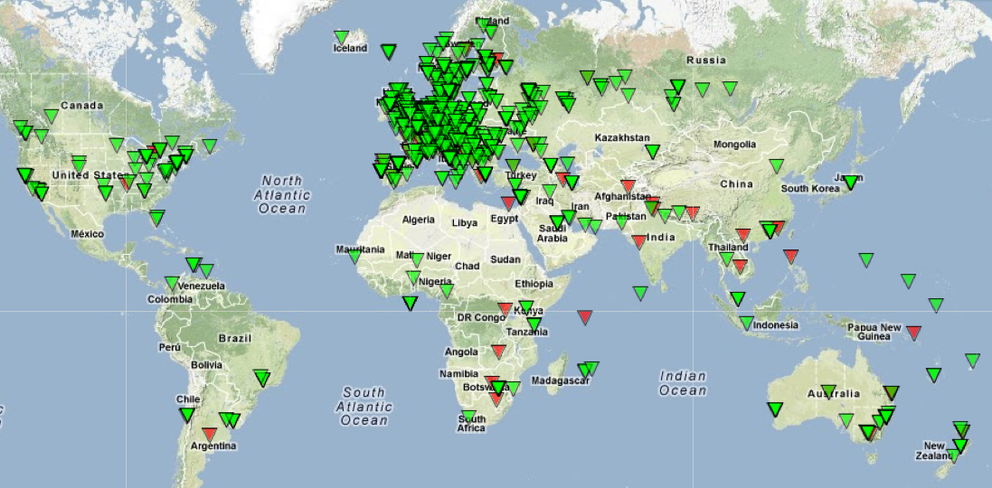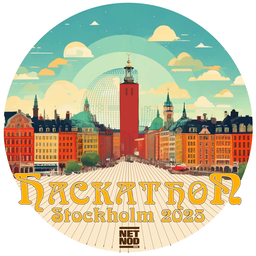We are proud to announce that over 1024 RIPE Atlas probes are now active, distributed over the whole world! This is an important milestone. It was one of our goals for 2011, and we achieved it!
Such an achievement was possible due to not only hard work of RIPE NCC staff, but also through the help of our community: the membership, RIPE Atlas hosts & sponsors.
- We are grateful for the support of the RIPE NCC membership that accepted the RIPE Atlas project as one of the activities since 2010.
- We also send our thanks to the volunteers in the RIPE community and beyond for hosting all those RIPE Atlas probes
- And we appreciate the financial and moral support of those organisations that sponsored RIPE Atlas in 2011: AMS-IX, APNIC, ICANN, NIC.at and XS4ALL.
Our next milestone is to add another 1024 active probes to the network and to have 2048 operational probes by 30 June 2012.
All those probes are continuously measuring the Internet's packet flow by automatically measuring latency and reachability. Anyone on the Internet can view the data made public by the probes hosts: you can see how well connected remote parts of the world are, for example, by looking at the reachability of root name-servers. Volunteers that host probes have the additional benefit of having their own connectivity measured.
The collection of all those individual data points give us a wealth of information from which we create
RIPE Atlas
maps
that illustrate network topology and geographical characteristics of Internet traffic. These maps are also made available to anyone in the Internet community, although
sponsoring organisations
have the additional benefit of deciding where to install the multiple probes they receive.
RIPE Atlas is creating unprecedented situational awareness of Internet performance. It generates and collects huge amounts of active measurement data that can be analysed by the research community. This data can further be used to develop tools for monitoring and troubleshooting which enables network operators to cut operational costs and contribute to building a better Internet.





Comments 0
The comments section is closed for articles published more than a year ago. If you'd like to inform us of any issues, please contact us.